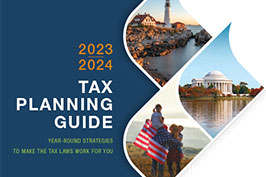The manufacturing executive’s guide to corporate taxes
If you are an executive at a manufacturing firm, you balance day to day operations in an environment that’s often beset with a myriad of challenges that put a lot of demands on your time while you still need to focus on a long-term strategy to keep your company competitive.
In addition to the daily issues that need your attention, manufacturing businesses have faced more problems as a result of the pandemic – reduced revenue, supply chain issues, a reduction in workforce, to name a few.
Another principal issue for a CFO is the ever-changing tax environment. While the corporate tax rate in the U.S. remained unchanged at 21% in 2021 from 21% in 2020, the issue of corporate taxes in 2022 has been the top concern for Wall Street and investors alike. The Biden Administration’s Fiscal Year 2022 Revenue Proposals includes raising the corporate income tax rate from 21% to 28%, effective for tax years beginning after 2021. For non-calendar-year corporations, the 2021-2022 tax rate would be 21% plus 7% times the portion of the tax year occurring in 2022.
As Congress struggles to reach an agreement on increases to the corporate tax rate, there are corporate tax planning as well as tax saving opportunities that could have a significant impact on the finances of your company.
CTA – Your tax planning guide

Top considerations
When assessing the current tax environment, every manufacturing CFO should consider the following:
- Domestic production activities deduction
- Tangible property regulations
- Interest charge–Domestic International Sales Corporation (IC-DISC)
- Annual tax relief extenders
- State and local tax considerations
Getting the guidance you need
As a manufacturing firm CFO, you know that competition continues to grow, not only domestically, but internationally, as well. In order to stay competitive, you have to be able to refine processes and increase and maintain margins.
The focus of managerial accounting is on your company’s internal operations and provides you with the necessary tools to evaluate your operations and to make changes when warranted. In addition, a managerial accountant can help when it comes to navigating local, state, and federal tax codes and regulations.
Testimonial
At GYL CPAs and Advisors, a CPA firm for the manufacturing industry in California, our manufacturing and distribution specialists offer clients their knowledge and expertise together with a variety of services so that their businesses can continue to remain competitive in today’s marketplace.
